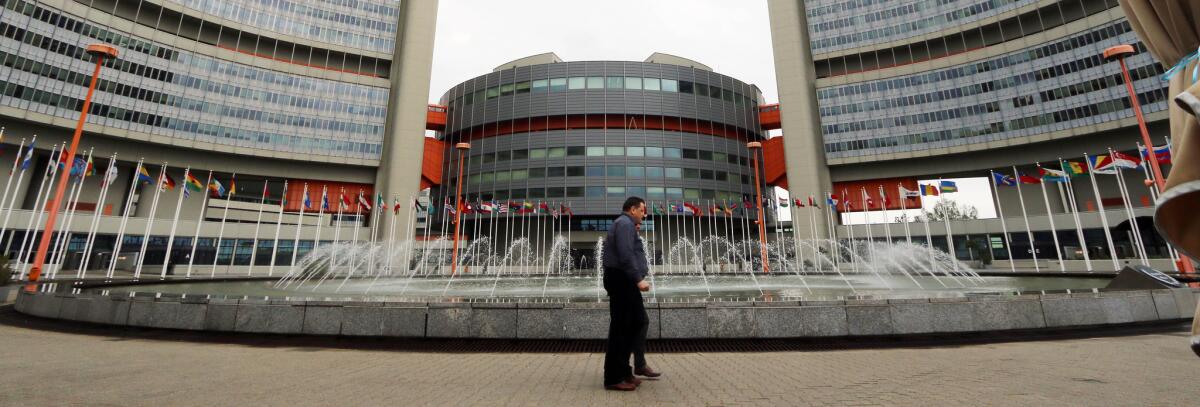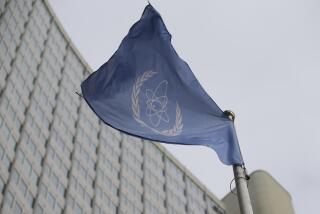Iran may have missed a deadline for providing nuclear data to U.N.

Reporting from Vienna — Iran apparently missed a deadline Thursday for providing information on its past nuclear activities to the United Nations’ nuclear agency, a snag that could cloud ongoing international nuclear negotiations with major world powers.
Tehran signed an agreement in November with the International Atomic Energy Agency committing it to greater openness about past activities, and until recently it seemed to be showing a new willingness to answer questions about its nuclear research. Many countries fear Iran has been seeking a nuclear weapons capability for years, despite its denials.
Iran had committed to providing information on a sophisticated detonator that can be used to set off a nuclear weapon, as well as for nonmilitary purposes. But the IAEA acknowledged in a statement Monday, with the deadline three days away, that it was still seeking information on the sensitive subject.
An IAEA spokeswoman said Thursday the agency, which keeps much of its work confidential, wouldn’t have any comment on Iran’s performance until next week, when a report is due to be released by the agency’s director general, Yukiya Amano.
A senior Obama administration official, asked earlier this week about Iran’s apparent failure to provide the information, stressed that Tehran must satisfy the U.N. Security Council’s demands for information if it wants to complete the comprehensive nuclear deal both sides have been working toward.
“We have been very clear that one cannot achieve a comprehensive plan of action without Iran making progress and resolving with the IAEA the concerns about the possible military dimensions of the program,” said the official, who declined to be identified under ground rules set by the administration.
Iran and six world powers have been in talks in Vienna this week to try to reach an agreement under which Iran would limit its nuclear activities in exchange for a lifting of international sanctions. Iran and its negotiating partners -- France, Britain, China, Russia, the United States and Germany -- are trying to complete the deal by July 20.
“Iran’s failure to provide information on the detonators and therefore to complete this round of the IAEA talks will arouse Western suspicions and set back at least the atmospherics in Geneva,” said Cliff Kupchan, an Iran specialist with the Eurasia Group risk assessment consulting firm.
But Kupchan said he viewed it more as a “bump in the road” than a dire threat to the negotiations. Iran was never likely to disclose all of its past activities, he said, because that could undermine its claims that it has never sought a bomb making capability.
Iran could also be withholding the information to pressure the Western governments over some point in the negotiations, he said.
Mark Fitzpatrick, a nonproliferation specialist at the International Institute for Strategic Studies in London, speculated that the Iranian government may not want to appear to be making too many concessions at a time when it is under pressure from hardliners at home to hang tough on the negotiations with world powers.
“I suspect this is about internal Iranian political dynamics,” he said.
More to Read
Sign up for Essential California
The most important California stories and recommendations in your inbox every morning.
You may occasionally receive promotional content from the Los Angeles Times.











